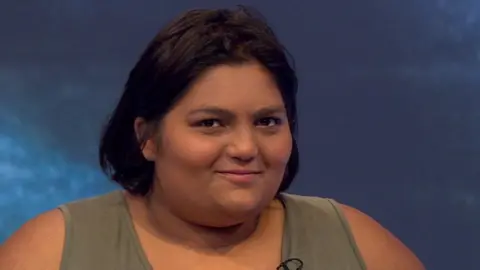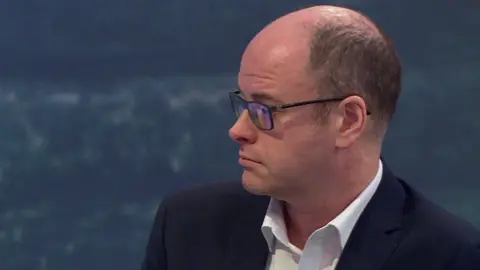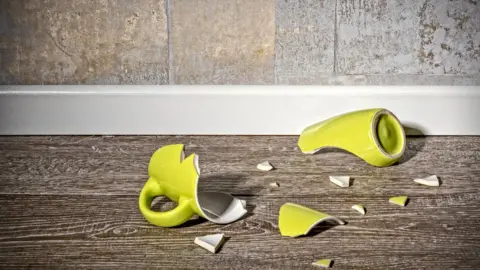Children in care ‘unnecessarily criminalised’
 BBC
BBCChildren in care are 13 times more likely to be criminalised than other young people, research suggests. Ella, who was arrested and charged within 10 days of entering a care home, says police are being called to manage minor misbehaviour.
"It was one of the worst homes I lived in probably," Ella, 19, tells the Victoria Derbyshire programme, speaking of the first care home she was placed in, four years ago.
"It was very chaotic, and it led to me - after 10 days - being kicked out of the home."
Ella - whose surname we are not using - says she was frustrated and confused, which she says was made worse by staff failing to communicate with her.
"Nobody really explained to me what being looked after meant, or what the plan was."
She was scared in the home and began to act up. First, ripping up paper - which she says staff referred to as "criminal damage" - and later pushing over sofas and throwing paper towels down the stairs.
She also got into a fight with another child and pushed a banana in a staff member's face, for which she was arrested and charged, spending 24 hours in a cell.
She was later convicted of criminal damage and common assault.
She regrets her actions, but also believes - away from the care system in a family home - police would not have been called, and she would not have had a criminal record that could affect her future employment.

Andrew Neilson, from the Howard League for Penal Reform, said Ella's experience is "typical of the stories we hear".
According to its research, children in care are 13 times more likely to be criminalised than other young people.
"Some children's homes are dealing with some very vulnerable people not in a good way, and relying on the police as a respite service," Mr Neilson said.
"Our initial concerns around criminalisation came from the police themselves who raised it with us, saying, 'We think there are some homes that call us out too much, and they're calling us out for stuff parents would never use the police for,'" he explained.
"Our message is that a good home, which treats children well and where staff present a degree of parental role-modelling, is a home where criminalisation is much less likely to occur."
'Police used as behaviour management'
Ella says the problem is often caused by inexperienced staff.
At her second children's home, after the manager left, there were many more police call-outs, she says, with behaviour that was previously dealt with within the home becoming criminalised.
"They were so young, so young," she says of the staff, "the majority in their 20s.
"They had two weeks of training, they didn't have any social work qualifications, training was mostly online. They had no idea."
She says the situation was even worse in the final children's home in which she was placed.
"Police were used as behaviour management," she says. "And that's what I find unacceptable.
"That whole thing in a family home of, 'wait until your dad gets home' - that was what the police were used as.
 Getty Images
Getty Images"One officer joked that it would be cheaper for a police officer to be stationed at the door than come down the road every day - because they were there every day.
"I got arrested and charged for criminal damage for smashing a mug," Ella explains. It did not go to court, but she was told to write a letter of apology and pay for the damage.
"That's a fun one to explain after a DBS [criminal record] check," she adds.
On another occasion, Ella says she was arrested and held overnight for assault after she "blew smoke in a staff member's face", although she was eventually informed no further action would be taken.
Criminal gangs
For Stuart Gallimore, president of the Association of Directors of Children's Services, the key to reducing the unnecessary criminalisation of "a small number of children in care" is building relationships between children's homes and their local police forces, as well as staff training.
It has been involved in a new government protocol aimed at doing this.
"It is also important that there is an appreciation of what lies behind a child's disruptive behaviour, such as a bereavement, earlier abuse or extreme neglect... and responses are suitably proportionate," Mr Gallimore said.
The Independent Children's Homes Association said that the figures for criminalisation of children in children's homes were "low... and declining still further", for which providers had been "a driving force".
Campaigners fear that criminalisation can affect care leavers' job prospects, and make them easy targets for criminal gangs.
Ella is now studying at university, but fears her past may affect her future career.
"Unless they [employers] have that understanding of what residential care is like, you're just somebody who's got a criminal record," she says.
"I would love to not be in that position, but I can't change that now."

